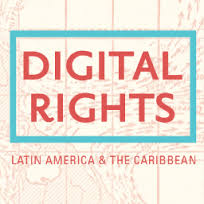 [Priscila Gonsales, Digital Rights LAC, Link, (CC-BY-SA)] After the industrial revolution, the information was primarily physical, printed: books, records, CDs, textbooks, encyclopedias, among other instruments. With the advent of internet, the information no longer requires materiality: it can be spread, multiplied, copied, distributed, remixed, in other words, changed in an immediate and unlimited manner according to varied contexts and needs. If nowadays finding data, content and materials is a click away, education should benefit from this potential and start to use, create and share online teaching resources available, improving research skills, collaboration and authorship of teachers and students. Unfortunately, this is still far from reality.
[Priscila Gonsales, Digital Rights LAC, Link, (CC-BY-SA)] After the industrial revolution, the information was primarily physical, printed: books, records, CDs, textbooks, encyclopedias, among other instruments. With the advent of internet, the information no longer requires materiality: it can be spread, multiplied, copied, distributed, remixed, in other words, changed in an immediate and unlimited manner according to varied contexts and needs. If nowadays finding data, content and materials is a click away, education should benefit from this potential and start to use, create and share online teaching resources available, improving research skills, collaboration and authorship of teachers and students. Unfortunately, this is still far from reality.
Every year a huge amount of public money is spent by the Brazilian government on the purchase of print and digital educational materials that are not open educational resources (OER) and therefore have restricted access, inhibiting reproduction possibilities, creation and adaptation by educators and students.
By official definition published in a UNESCO/Commonwealth document, OER are teaching, learning and research materials, fixed in any medium or media, preferably on platforms or open formats (free software), which are in the public domain or licensed openly, allowing them to be used or adapted by others.
Open Educational Resources may include full courses, parts of courses, modules, textbooks, research articles, videos, tests, software and any other tool, material or technique that can support access to knowledge. This definition date of 2011 and was drafted with the help of Community Open Educational Resources (OER) of Brazil.
Since 2008, the REA Community of Brazil, formed by hundreds of people from various fields of knowledge, has been organizing events, meetings and publications on the importance of open education. Working with the Community REA, the REA.br project, coordinated by Educadigital Institute and with support from the Open Society Foundations, is an advocacy work to transform public policy of access to educational resources financed with public funds. ARede Prize winner 2014, REA.br operates in the legislative and executive spheres, and participates regularly in international meetings such as the World OER Congress, organized by Unesco in 2012.
Some results of this advocacy work in recent years:
– National Education Plan (PNE): two goals (5 and 7) on quality in basic education include encouraging REA;
– Federal Law Project 1513/2011: seeks to ensure public purchases or contracting services and educational materials are governed through free licenses, allowing the dissemination and increased access to these goods throughout society;
– State Bills in SP (989/2011): adopted unanimously by the Legislative Assembly of São Paulo, but vetoed by Governor Alckmin;
– Paraná State Law Project (185/2014) and Federal District (1832/2014) in progress;
– Municipal Decree in São Paulo (52.681 / 2011), which provides for the compulsory licensing of intellectual works produced or subsidized by educational, pedagogical and related objectives.
In November 2014, in the US capital of Washington, during OpenEd –the world’s largest congress of open education– the Educadigital Institute and other organizations from various countries participated in a REA advocacy activity directly with political and technical advisers in the White House. The aim was to highlight the benefits of current public policy of the US president, Barack Obama, for REA, to be maintained and expanded to other levels of education. In addition, the group emphasized the importance of this experience be shared with foreign governments through conferences and seminars.
From this experience, the Educadigital Institute was able to articulate with the committees on education and culture of the Chamber of Deputies in Brasilia to organize a seminar on the theme, bringing international guests to share their experiences in REA public policy. It will be on August 19 in Brasilia, and August 20, in São Paulo, organized in partnership with ARede.educa.
To learn more about Brazilian and international initiatives on REA, please visit: www.rea.net.br and the video animation with subtitles in Spanish and English
*Priscila Gonsales is an educator and journalist, Ashoka social entrepreneur, founder of Educadigital Institute, which develops open education initiatives and projects in digital culture. E-mail: prigon@educadigital.org.br




